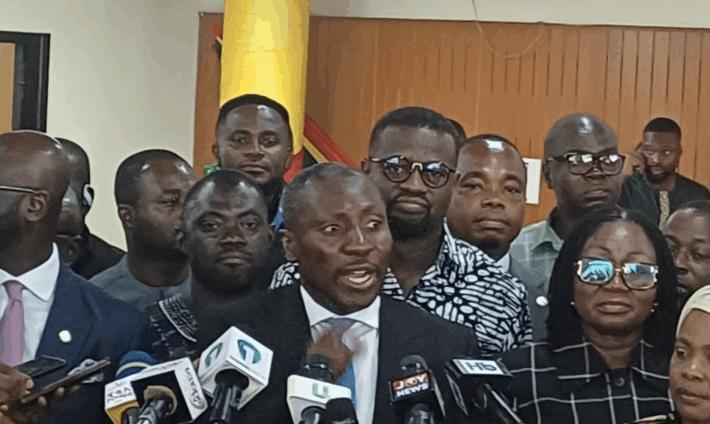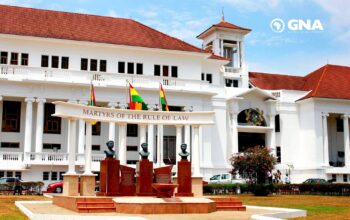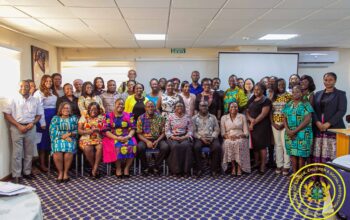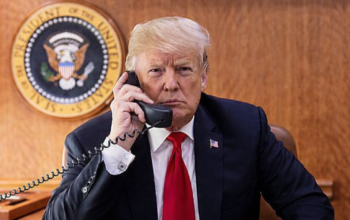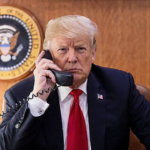The Minority in Parliament has strongly condemned the violence that disrupted the Ablekuma North parliamentary rerun, calling it a “direct assault on Ghana’s democratic foundations.”
Speaking at a press briefing on Wednesday, July 16, the Member of Parliament for Atiwa West, Asante Laurette Korkor, described the events of Friday, July 11, as “the most serious assault on Ghana’s democracy since the return to constitutional rule.”
Hon. Korkor emphasized that the violence, which allegedly involved intimidation, physical attacks, and interference with the voting process, cannot be dismissed as isolated misconduct. “These incidents represent a systemic breakdown in the protection of electoral integrity, and a worrying normalization of political violence,” she stated.
The Minority is calling for:
- An independent investigation into the events of July 11.
- Immediate action from the Electoral Commission and law enforcement to ensure accountability.
- Concrete steps to safeguard future elections from similar incidents.
Hon. Korkor warned that if such violence is allowed to go unchecked, it could undermine public trust in democratic institutions and set a dangerous precedent for future electoral processes.
“We must not allow the blood of democracy to be spilled on the altar of political expediency,” she said.
The Ablekuma North rerun was called after the annulment of the December 2024 parliamentary results due to procedural irregularities. Friday’s rerun was expected to restore confidence in the process — but the reported violence has reignited national concerns over election security and political accountability.
The Minority in Parliament has issued a fierce denunciation of the violence that marred the Ablekuma North parliamentary rerun, describing the events as a “direct assault on Ghana’s democratic foundations” and warning of a deepening threat to the country’s constitutional order.
At a press briefing held on Wednesday, July 16, the Member of Parliament for Atiwa West, Asante Laurette Korkor, described the July 11 rerun as “the most serious assault on Ghana’s democracy since the return to constitutional rule.”
“This is not merely about electoral irregularities,” Hon. Korkor stated. “This is about whether Ghana will tolerate the systematic destruction of democratic norms by those entrusted with protecting them.”
According to the Minority, the violence was not random but orchestrated and targeted, with attacks reportedly aimed at political figures, party agents, and members of the media.
“The coordinated attacks, followed by the shameful celebration of this violence by senior government officials, mark a dangerous turning point that demands immediate and decisive action,” she added.
The Minority is demanding:
- A fully independent investigation into the events of July 11;
- Prosecution of all perpetrators, regardless of political affiliation;
- Stronger security guarantees for future elections and democratic actors.
They also accused state authorities of failing to protect the integrity of the process, raising alarm over what they perceive as growing tolerance — or complicity — in politically motivated violence.
The Ablekuma North rerun followed the annulment of the December 2024 results, which had been voided over procedural errors. Expectations were high that the rerun would restore confidence in the democratic process. However, the reports of violence and intimidation have sparked fresh outrage and public concern.
Political observers warn that if such patterns persist, they could erode public faith in Ghana’s electoral institutions — long regarded as among the most stable in West Africa.
According to the Minority, the violence witnessed was not isolated but strategically planned and executed, targeting political opponents, party agents, and even journalists.
“The coordinated attacks, followed by the shameful celebration of this violence by senior government officials, mark a dangerous turning point that demands immediate and decisive action,” she added.
They cited specific incidents, including:
- Impersonation of security personnel by unidentified individuals;
- Voter intimidation at several polling stations;
- Physical assaults on political actors and party representatives.
One such incident occurred at Asiedu-Jadu Memorial School polling station one, where alleged NDC-affiliated thugs clashed with police officers, leading to widespread panic and disruption.
“NDC thugs engaged in direct confrontations with police officers, creating a chaotic environment that endangered voters and electoral officials,” Korkor reported.
Perhaps most troubling, the Minority revealed that Chris Lloyd Nii Kwei Asamoah, Deputy National Organiser of the New Patriotic Party (NPP), was physically attacked during the electoral process.
“This attack on a senior party official revealed the systematic nature of the violence. These were not random acts but coordinated attacks on NPP leadership and democratic institutions,” she said.
In response to the events, the Minority is demanding:
- An independent, nonpartisan investigation into the violence;
- The prosecution of all individuals responsible, regardless of political ties;
- Reinforced security measures in future elections to protect voters and officials.
They also urged the Electoral Commission and security services to restore public confidence by ensuring transparency and accountability.
The Ablekuma North rerun was conducted after the December 2024 election results were annulled due to procedural irregularities. The rerun was intended to be a corrective measure — but instead has sparked deeper concerns about political violence, state complicity, and democratic backsliding.
Observers and civil society groups have begun calling for swift national dialogue to prevent a recurrence and to reaffirm Ghana’s commitment to peaceful, credible elections. The Minority in Parliament has sharply condemned not only the coordinated violence during the Ablekuma North parliamentary rerun, but also statements from senior government-affiliated officials that it says amount to endorsements of political violence.
At a press briefing on Wednesday, Asante Laurette Korkor, MP for Atiwa West, expressed alarm at comments made by prominent figures connected to the ruling party, the National Democratic Congress (NDC).
“Dr. Hannah Louisa Bissiw, National Women’s Organiser of the NDC and CEO of the Mineral Development Fund, made perhaps the most damaging comment when she said, ‘violence begets violence,’ suggesting the brutal attacks were somehow justified,” Korkor said.
She further cited inflammatory social media posts by Malik Basintale, Acting CEO of the Youth Employment Agency and Deputy National Communications Officer of the NDC.
“Basintale’s celebration of an attack on former MP Mavis Hawa Koomson — describing the assailant as ‘the flying python’ and declaring he would be in charge of the ‘5K Air Force’ — represents a new low in Ghana’s political discourse,” Korkor added.
These remarks, the Minority warned, risk normalizing violence and deepening divisions at a time when national unity and democratic integrity are critically fragile.
The Minority’s accusations come in the wake of serious violence and intimidation during the July 11 Ablekuma North rerun, which included impersonation of security personnel, voter intimidation, and physical assaults targeting opposition party officials.
Among the victims was Chris Lloyd Nii Kwei Asamoah, Deputy National Organiser of the New Patriotic Party (NPP), whose attack exposed the systematic nature of the violence.
The Minority insists on an independent investigation and prosecution of all those responsible, emphasizing that no individual or political faction should be above the law.
“We must reject any attempts to justify or celebrate violence. Ghana’s democracy cannot survive if its leaders condone brutality and intimidation,” Korkor stressed.
The Ablekuma North rerun was meant to restore confidence following annulled results from December 2024, but the recent events have intensified calls for urgent reforms to safeguard Ghana’s democratic future.
